The Horn of Africa Unprotected.
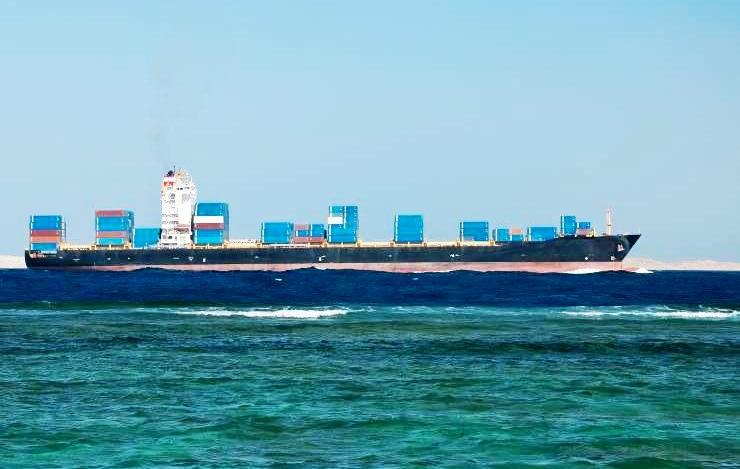
A political earthquake in the Middle East with strong repercussions, also for the economy, on the part of Africa that overlooks the Red Sea. These are consequences of the Hamas attack on Israel followed by the war of annihilation in Gaza. The already fragile architecture of peace and security in the Horn of Africa is at risk.
The Red Sea has always been a strategic element for Israel and its instability arouses concern in Tel Aviv. A quarter of Israeli maritime trade, until now handled by the port of Eilat, in the Gulf of Aqaba, an inlet of the Red Sea, has already been seriously reduced. Hundreds of ships choose to circumnavigate Africa to avoid the risks of attacks by drones launched by the Houthis of Yemen.
Israel has long viewed the Red Sea littoral countries – Jordan, Egypt, Saudi Arabia, Yemen, Sudan, Eritrea, Djibouti and Somalia – as pieces of the puzzle of its long security frontier.
Historically, Egypt has shared the same concern of losing considerable resources related to the passage of ships through the Suez Canal. Last year, the Canal’s revenue was $9.4 billion: Egypt’s third largest producer of American foreign currency, preceded only by remittances from Egyptians working in the Gulf states and the tourism industry.
The collapse of maritime security from Suez and Eilat to the Gulf of Aden would cause immense damage to both Israel and Egypt.
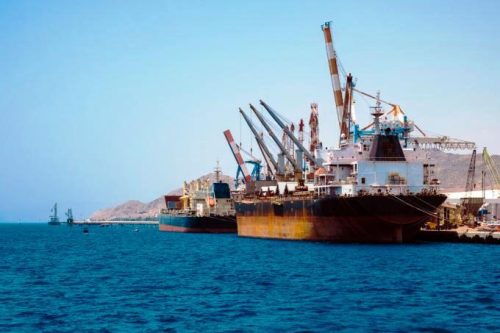
Cargo ships stand in the port of Eilat on the Red Sea (Israel).123rf
The Red Sea has today become a strategic area, not only for the other powers present for years, but also for China which has established its first military base abroad in Djibouti. Every year over 10% of world maritime trade, with 25 thousand ships, enters the Red Sea coming from the Gulf of Aden through the Strait of Bab el-Mandeb.
Saudi Arabia, for its part, after having neglected those coasts for a long time, has rediscovered their importance in the last decade. Among other things, in the 1980s, out of fear that Iran could block oil tanker traffic through the Persian Gulf, Arabia built an oil pipeline and a large refinery in an east-west direction to exploit the Aqaig oil fields at the port of Yanbu’al-Bahr on the Red Sea. Now strategic, this structure has returned to the centre of Riyadh’s attention. At the same time, the United Arab Emirates (UAE) is on track to secure a monopoly on the ports of the Gulf of Aden, which constitutes the eastern access to the Red Sea.
In this way, they effectively annexed the Yemeni island of Socotra to make it a naval base. The UAE are therefore also looking for a foothold in the Red Sea and a series of strategic positions on the African shore. Even before the Israeli-Palestinian conflict broke out, therefore, all the Arab countries in the area had intensified the race to secure naval bases in the Red Sea and the Gulf of Aden.
The famous Camp Lemonnier of the USA is present in Djibouti together with similar French, Italian, Japanese, Saudi and Chinese structures (the United Kingdom, Germany and Spain rely on them). Meanwhile, Turkey and Russia have long been trying to obtain space for military bases in Port Sudan and on the coast of Eritrea.
The Ambitions of the Gulf States
In short, there is nothing unusual in the Horn of Africa being at the mercy of the great powers and those of the Middle East. But this process has now intensified. Furthermore, for decades there has been competition between Saudi Arabia and Iran to gain hegemony over Sudan and Eritrea in different ways.
Sudanese general Abdel Fattah al-Burhan, former political partner of Benjamin Netanyahu and signatory of the so-called Abraham Agreement, now in full conflict with his former ally Mohamed Hamdan Dagalo (Hemeti), signed an agreement with Iran, to obtain armaments. A move that has brought its proximity to Egypt and Saudi Arabia into question.
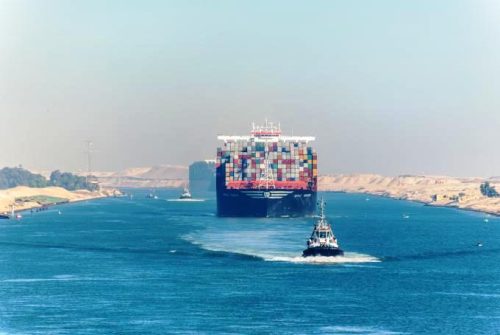
Large container vessel ship MSC Maya passing Suez Canal. 123rf
More recently, the regional ambitions of Turkey and Qatar have clashed with Riyadh and Abu Dhabi, largely due to the Muslim Brotherhood – supported by Ankara and opposed by Riyadh. Among Middle Eastern states, the UAE has been the most moderate in condemning Israel for the ongoing conflict in Gaza. The government in Doha has stated that it does not intend to confuse trade and politics, which means it will continue to implement the economic cooperation agreements signed with Israel following the Abraham Accords.
The UAE is also located at the centre of the India/Middle East/Europe corridor (Imec), a geo-strategic asset sponsored by the United States and presented at the G20 summit in September in India as a response to the Chinese Silk Road initiative (Belt and Road).
Sudan between Riyad and Abu Dhabi
After the outbreak of the war in Sudan in April 2023, the joint Saudi-American mediation had the aim, among other things, of mending relations between Washington and Riyadh on the US side. The talks in Jeddah, which resumed at the end of October with a program of a ceasefire and humanitarian access, and with the involvement of the African Union, have so far not had a positive outcome. Meanwhile, the Emirates continues to support General Hemeti, who is gaining ground and now controls Khartoum, Wad Madani and other locations.
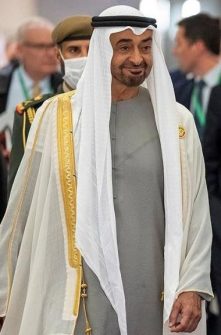
The president of the UAE, Mohammed bin Zayed al Nahyan.
This after almost eleven months of fighting in which Hemeti’s Rapid Support Forces (RSF) have earned a reputation for military capability but also for total disregard for the dignity, life and rights of civilians. Although the Sudanese middle class opposes the RSF, the president of the UAE, Mohammed bin Zayed al Nahyan, known as MBZ, has remained a strong ally of Hemeti who could soon proclaim a new government, legitimising himself by involving civil society leaders.
His recent trips to Uganda and Ethiopia to win over their governments seem to go in this direction. At the same time, General al-Burhan is probably planning to form a government based in Port Sudan. A Libyan scenario is looming.
America and the Pax Africana
As with Trump, peace and security in the Horn of Africa is not a real priority for Biden. While an American security umbrella has long existed on the Arabian Peninsula, the countries of the Horn of Africa have had to develop their own peace and security system, based on a multi-level multilateral structure involving the Intergovernmental Authority on Development (IGAD), the African Union and the UN, with peacekeeping forces and missions financed mostly by the European Union.
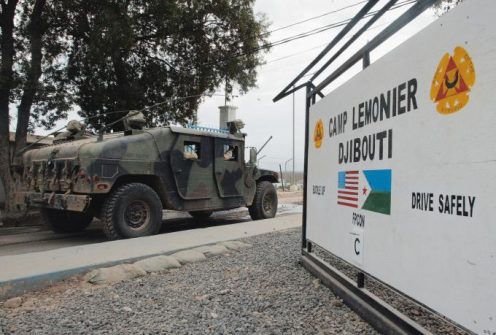
The USA Camp Lemonnier in Djibouti. File swm
Donald Trump, being indifferent to Africa, had allowed his intermediaries – Egypt, Israel, Saudi Arabia and the UAE – to freely pursue their interests through the Horn of Africa. On the whole, the Biden administration has not changed this approach. Rare visits to Africa by American officials are not enough… As long as Biden’s policy in the Horn of Africa is managed by the State Department’s Bureau for Africa – whose diplomats are unlikely to earn the attention needed from their counterparts in the regimes of the Gulf – Washington’s views will remain essentially irrelevant. This political shortsightedness has contributed to worsening the crisis of the entire region. On the other hand, the political tradition of the United States of allowing Israel to ignore international law has seen growing discredit for the United States by Israel’s allies in the Middle East (Saudi Arabia and the Emirates in particular), who are actively dismantling the already faltering pillars of Africa’s peace and security system. Those who pay the price, as always, are the African countries that most need an internal and external apparatus for the continent that acts in the line of multilateralism based on well-defined principles. (Open Photo: The cargo ship transporting containers across the Red Sea.123rf)
Alex De Waal



